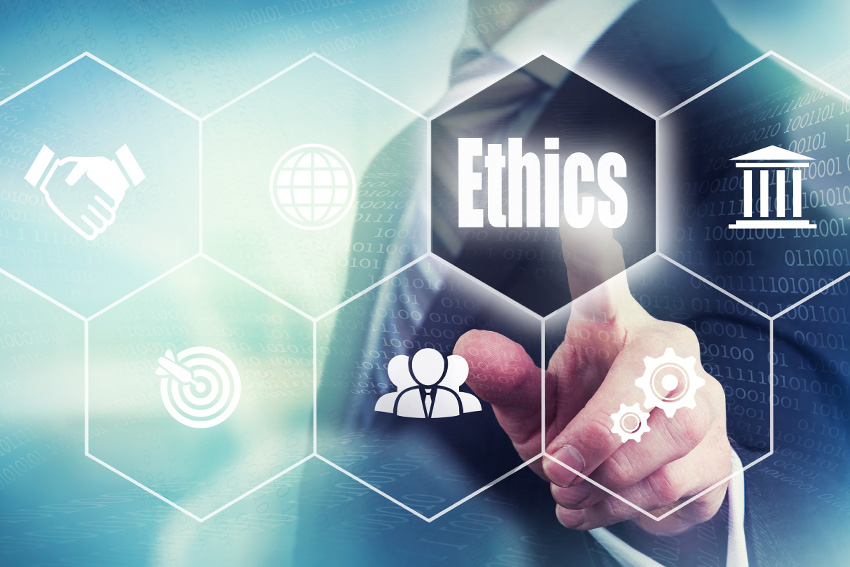Contact
-
E-Mail
This email address is being protected from spambots. You need JavaScript enabled to view it.
Modules
Semester 1
Module 1: Interpersonal Communication Skills


- Understand communication theories and apply this knowledge to your own communicative behavior and that of others
- Acquire skills in presentation as well as in moderation and get training in tools for mindful communication
- Develop your leadership and self-management skills and apply them to your own professional situation
Module 2: Business Development Management


- Deepen your understanding of the scope and fundamental concepts of business development particularly in view of sustainability as a transformative force
- Learn about the role of Business Development in different organizational structures and how it interfaces with other functions; this includes alternative settings depending on company size
- Learn to apply a structured Business Development process and sharpen your skills for business modelling and planning in a dynamically changing and unpredictable global competitive environment
- Apply your knowledge to establish and manage performance measurement and control
Module 3: Intra-/Entrepreneurship Competence


- Identify the differences between intra- and entrepreneurship in an academic and application-oriented context
- Recognize the relevance of intra-/entrepreneurial competencies when dealing with uncertainty
- Reflect on and assess the potential as well as the impact of entrepreneurial undertakings
- Apply systemic approaches to innovations and identifying opportunities
- Select and apply methods of entrepreneurial self-management/-development and value-based leadership approaches
Module 4: Systemic Thinking & Management of Complex Systems


- Learn the different schools of thought of systems thinking
- Understand systems dynamics and acquire tools for systems thinking
- Use the systems practice process to identify opportunities for impact
- Build up skills to design regenerative systems (circular economy) and learn to effectively manage complex systems (cybernetics and viable systems theory)
Module 5: Corporate Sustainability Management


- Understand the historical and theoretical foundations of sustainability and its importance as a management task
- Learn to apply and critically evaluate key concepts, models and control mechanisms of sustainability.
- Reflect on the impact of corporate actions and behavior on sustainability and understand it as an opportunity for the strategic positioning of the company in the market
Semester 2
Module 6: Value-based Leadership: Business Ethics & Corporate Culture


- Learn and apply the essential theoretical foundations of business and corporate ethics as well as corporate social responsibility (CSR)
- Understand and assess the fundamental relationship between law, economics and ethics in a national and international context
- Learn about value-based leadership concepts: trait theories, behavioral/situative/interactionist approaches
Module 7: Sustainable Sales & Marketing


- Understand and apply approaches of sustainable marketing and sales management
- Articulate the importance and advantages of CSR marketing together with the related risks and understand how to implement it
- Learn and assess the complexity of CSR and its impact on future consumer behavior
- Describe what social marketing is and how companies now use it as an essential part of their strategic CSR
Module 8: Business Unit Development incl. Mergers & Acquisitions


- Apply state of the art business development know-how, methods and concepts on a corporate and SBU level
- Understand and manage the interdependencies and complex relationships between corporate and SBU business development
- Learn to design and implement business development strategies for existing and new SBUs in an international and intercultural context
- Recognize the growing importance of M&A in international business development and learn the management and application of the major M&A instruments
Module 9: Innovation Management


- Understand innovation management from a general strategic and operational management perspective focusing on markets, industries and their inherent dynamics
- Learn how to turn ideas into new products and sustainable business models based on insights into innovation economics and network effects
- Reflect on sustainable innovation strategies including timing of disruptive vs. incremental innovation efforts and catalyze specific innovation projects within the organization
- Develop a tool set for product development
Module 10: Digital Business and Applied Artificial Intelligence (AI)


- Understand the fundamentals of digital business in terms of digital business model innovations, data-driven business models, and smart products and services
- Evaluate selected emerging digital technologies, their potential business implications and the challenges of organizational adoption
- Reflect on the need for and areas of action in the digital transformation of businesses and public organizations
- Learn about emerging digital technologies as enablers of business model innovation
Semester 3
Module 11: Transformative Leadership


- Understand the concept of transformational leadership as a participative process of creative collaboration and transformation in a team
- Reflect on your leadership role in a dynamic and agile business environment and link the different bodies of knowledge for managing teams, particularly in the context of change
- Learn negotiation skills, constructive/de-escalating conflict and change management
- Identify personal development potential by reflecting on your own professional/leadership role(s)
Module 12: Strategic Business Development – Interactive Simulation


- Apply your theoretical knowledge and team-based experience directly to a simulated competitive, realistic business game
- You will be exposed to a wide range of business decisions in as real a context as possible
- Your team will be responsible for decision making within conflicting objectives
- During the simulation game your skills in conflict management and team orientation will be challenged
Module 13: Finance and Sustainable Business


- Familiarize yourself with the fundamentals of funding, new technology in raising capital, sustainability, climate and definition protection of the environment, capital investment behavior, consumption and demand
- Understand the concepts of private equity, rating and financial clearing-up reconstruction measures and develop solutions for restructuring and financial investment
- Become familiar with controlling methodologies in order to steer investments within new projects
- Build up knowledge about digital finance, kryptolicense business and blockchain strategies
Module 14: Compulsory Module - Operational Excellence – Operations and Supply Chain


- Understand Operational Excellence principles and their importance for business success in terms of product and process development as well as end-to-end supply chain design
- Internalize the meaning of Operational Excellence for a sustainable production, e.g. how to realize and adapt it to different production characteristics
- Get to know professional tools like 5S, SMED, Six Sigma, Value Stream mapping (VSM) or Cause-and-Effect-Diagram
- Get a holistic view on the necessity of Operational Excellence for a sustainable transformation
Module 15: Compulsory Module - Operational Excellence – Services


- Learn about the service dominant logic in business models of companies/corporations
- Understand the theoretical and strategic characteristics of service businesses incl. service production and marketing
- Reflect on the specific role customers play in the development and production of services (hurdles and/or opportunities)
- Get to know the multitude of factors associated with service management and the required strategies for transformation in all operational functions
- Recognize the impact of CSR requirements, new innovative technologies like digitalization, new work, diversification and talent development on the development of service businesses
Module 16: Agile Projects and Business Transformation Methods


- Discover the challenges and the underlying problems of Digital Business Transformation Management and Agile Project Management
- Learn and critically reflect on possible consequences of science-based decisions
- Develop a detailed understanding of the latest tools, techniques and methods within agile project management and their application
- Learn Design Thinking methods and Transformation through Enterprise Architecture Management
Semester 4
Module 17: Master-Thesis with Colloquium


- Apply scientific methods
- Demonstrate your ability to solve problems
- Conduct a study in an unfamiliar field in the specified timeframe
- Deepen your knowledge in a specific subject area or in an interdisciplinary practical case
Additional Module
Reflections on one’s career to date / Crediting postgraduate work experience


- Perform a self-critical analysis
- Practice conflict management, moderation techniques, verbal and non-verbal communication and conversation techniques
- Execute learning techniques, time management and presentation techniques
- Introduce innovation, plan and implementing change processes by apply networked thinking
Applicants with an academic degree of less than 210 credits will be required to complete this module.
Certificates
Innovation Management | Certificate of Advanced Studies (CAS)


- Learn about new technologies, tools, and data-driven business models, and assess their practical applicability.
- Gain an understanding of AI technologies and their practical applications in business.
- Develop skills to reflect on entrepreneurial decisions and manage real uncertainty, with a strategic and operational perspective on innovation management.
Business Development Management | Certificate of Advanced Studies (CAS)


- Integration of theoretical knowledge with practical application in business area and company development.
- Application of structured business development processes emphasizing sustainable concepts.
- Understanding the interrelationships between corporate and business development.
Systemic Business Management | Certificate of Advanced Studies (CAS)


- Acquire the ability to holistically manage complexity within a company and its environment, understanding the organization as a system of interconnected parts.
- Gain a systemic perspective to recognize and understand interactions between different parts of the company and its external environment.
- Focus on finding balances that promote sustainability and long-term success as a Systemic Business Manager.
Business Development and Innovation Management | Diploma of Advanced Studies (DAS)


-
Gain skills in strategic innovation management, business area development, and corporate development, essential for driving business growth and competitiveness.
-
Learn about new technologies, tools, and data-driven business models, and develop the ability to assess their applicability and effectiveness within your organization.
-
Understand complex relationships and the dynamic interplay between industry, society, and markets, enabling you to foster innovations with high resilience through contextual thinking methods.

Set sail and
broaden your horizons.
broaden your horizons.
Further education
Social

